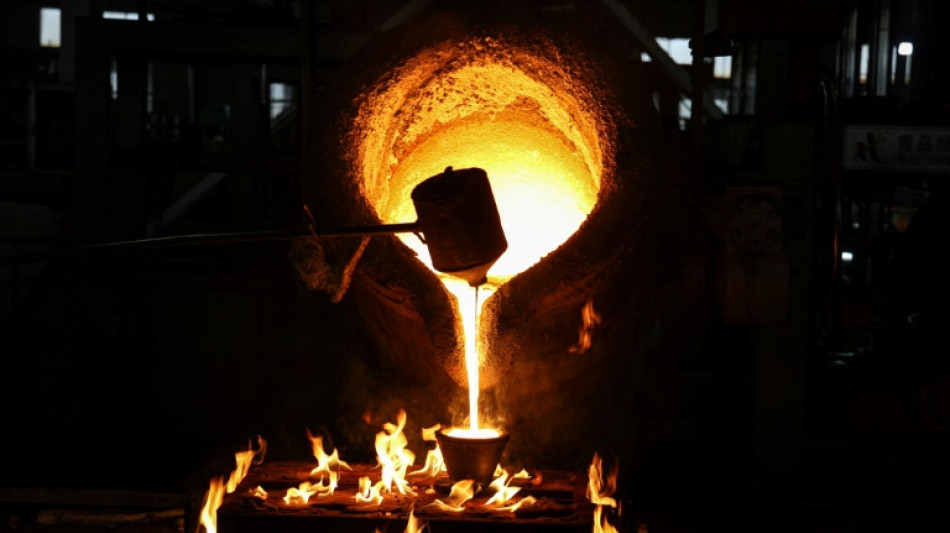
-
 Greece to spend 25 bn euros in 'drastic' defence overhaul: PM
Greece to spend 25 bn euros in 'drastic' defence overhaul: PM
-
Maresca non-committal over Sancho's future at Chelsea

-
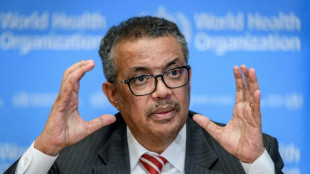 WHO facing $2.5-bn gap even after slashing budget: report
WHO facing $2.5-bn gap even after slashing budget: report
-
Real Madrid coach Ancelotti tells tax trial did not seek to defraud
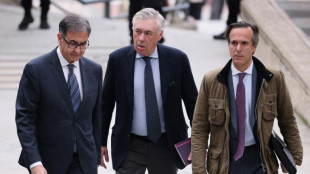
-
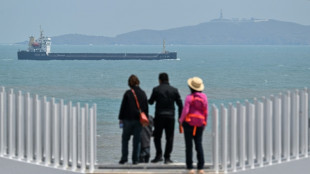 Chinese tourists pine for Taiwan's return as Beijing jets surround island
Chinese tourists pine for Taiwan's return as Beijing jets surround island
-
Singapore detains teenage boy allegedly planning to kill Muslims
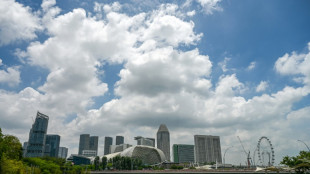
-
 What is the 'Qatargate' scandal roiling Israel?
What is the 'Qatargate' scandal roiling Israel?
-
AI coming for anime but Ghibli's Miyazaki irreplaceable, son says

-
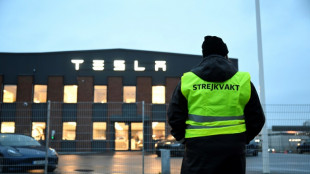 Swedish insurer drops $160 mn Tesla stake over labour rights
Swedish insurer drops $160 mn Tesla stake over labour rights
-
Hunger returns to Gaza as Israeli blockade forces bakeries shut
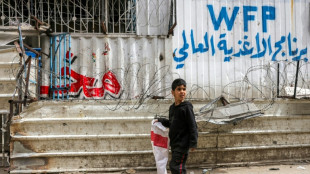
-
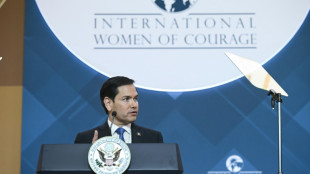 Rubio heads to Europe as transatlantic tensions soar
Rubio heads to Europe as transatlantic tensions soar
-
Like 'living in hell': Quake-hit Mandalay monastery clears away rubble

-
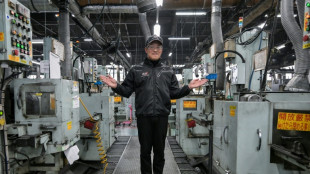 'Give me a break': Trump tariffs threaten Japan auto sector
'Give me a break': Trump tariffs threaten Japan auto sector
-
US approves $5.58 bn fighter jet sale to Philippines

-
 Tsunoda embracing pressure of Red Bull debut at home Japanese GP
Tsunoda embracing pressure of Red Bull debut at home Japanese GP
-
'Outstanding' Hay shines as New Zealand seal Pakistan ODI series

-
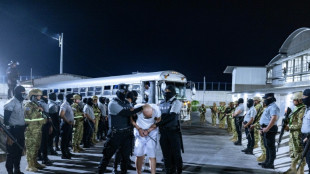 El Salvador's Bukele flaunts 'iron fist' alliance with Trump
El Salvador's Bukele flaunts 'iron fist' alliance with Trump
-
Stock markets mixed as uncertainty rules ahead of Trump tariffs
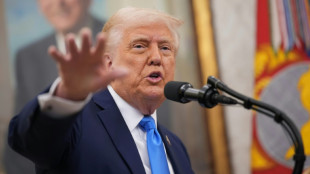
-
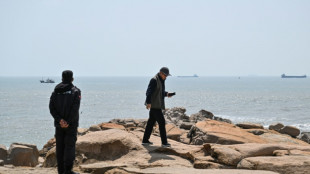 China probes for key target weak spots with 'paralysing' Taiwan drills
China probes for key target weak spots with 'paralysing' Taiwan drills
-
'Top Gun' and Batman star Val Kilmer dies aged 65: New York Times

-
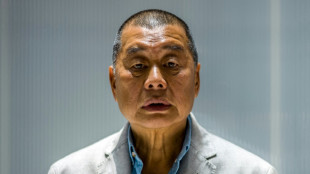 US lawmakers seek to rename street for Hong Kong's jailed Jimmy Lai
US lawmakers seek to rename street for Hong Kong's jailed Jimmy Lai
-
Greece to spend big on 'historic' military shake up

-
 Trump faces first electoral setback after Wisconsin Supreme Court vote
Trump faces first electoral setback after Wisconsin Supreme Court vote
-
Hay shines as New Zealand beat Pakistan for ODI series win

-
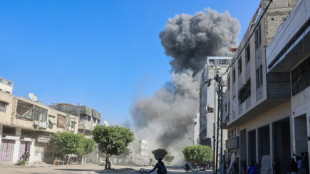 Israel says expands Gaza offensive to seize 'large areas'
Israel says expands Gaza offensive to seize 'large areas'
-
Curry drops 52 as Warriors win, Jokic bags career-high 61 in Denver loss

-
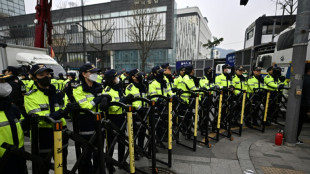 South Korea mobilising 'all resources' for violence-free Yoon verdict
South Korea mobilising 'all resources' for violence-free Yoon verdict
-
Myanmar quake victim rescued after 5 days as aid calls grow

-
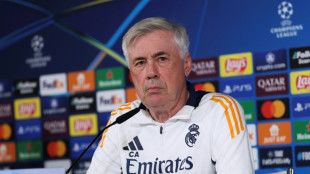 Real Madrid coach Ancelotti tax fraud trial set to begin
Real Madrid coach Ancelotti tax fraud trial set to begin
-
Warner showcases 'Superman' reboot, new DiCaprio film

-
 'Incredible' Curry scores 52 as Warriors down Grizzlies, Bucks edge Suns
'Incredible' Curry scores 52 as Warriors down Grizzlies, Bucks edge Suns
-
Asian markets edge up but uncertainty rules ahead of Trump tariffs
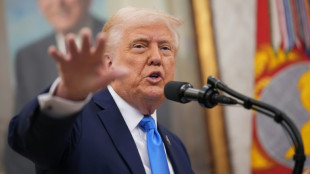
-
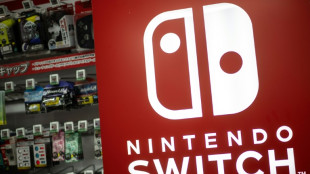 Nintendo's megahit Switch console: what to know
Nintendo's megahit Switch console: what to know
-
Nintendo to unveil upgrade to best-selling Switch console
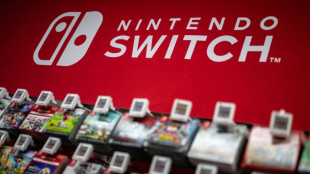
-
 China practises hitting key ports, energy sites in Taiwan drills
China practises hitting key ports, energy sites in Taiwan drills
-
Oil, sand and speed: Saudi gearheads take on towering dunes

-
 All eyes on Tsunoda at Japan GP after ruthless Red Bull move
All eyes on Tsunoda at Japan GP after ruthless Red Bull move
-
'Image whisperers' bring vision to the blind at Red Cross museum
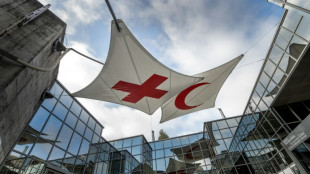
-
 Hay shines as New Zealand make 292-8 in Pakistan ODI
Hay shines as New Zealand make 292-8 in Pakistan ODI
-
Other governments 'weaponising' Trump language to attack NGOs: rights groups
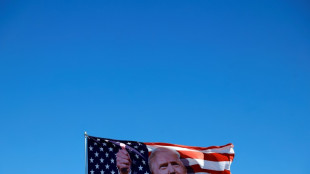
-
 UK imposes online entry permit on European visitors
UK imposes online entry permit on European visitors
-
How a Brazilian chief is staving off Amazon destruction

-
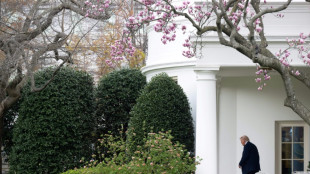 Meme politics: White House embraces aggressive alt-right online culture
Meme politics: White House embraces aggressive alt-right online culture
-
China launches military drills in Taiwan Strait

-
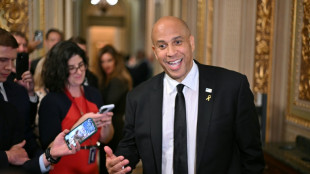 US senator smashes record with 25-hour anti-Trump speech
US senator smashes record with 25-hour anti-Trump speech
-
Brazil binman finds newborn baby on garbage route

-
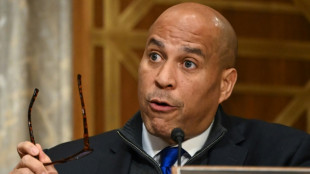 US senator smashes record with marathon anti-Trump speech
US senator smashes record with marathon anti-Trump speech
-
Trump advisor Waltz faces new pressure over Gmail usage
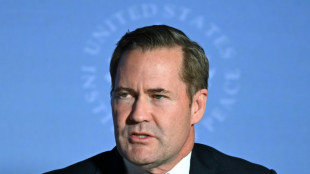
-
 NHI Announces $63.5 Million Senior Housing Investment
NHI Announces $63.5 Million Senior Housing Investment
-
Miami Church Covers 100% of Uber Rides to Easter Service-Tips Included


Trump tariffs threaten Latin American steel industry
Chile's largest steel plant shut down last year, yielding to cheaper production in China.
Now, six months later, the tariffs that President Donald Trump has imposed on US imports of the metal threaten the livelihood of 1.4 million workers in Latin America.
As he did during his first term in office from 2017 to 2021, Trump is trying to protect American producers by making steel imports costlier with a 25 percent tariff that kicked in on March 12.
The United States imports 25 million tons of steel each year, and Canada is it main supplier, followed by Brazil and Mexico, each with products tailored to other industries like car manufacturing and construction.
The United States relies on Latin America for specialized steel products, said Ezequiel Tavernelli, head of the Latin American Steel Association, Alacero.
With the world awash steel production overcapacity, and China the main offender, the Trump tariffs will distort the market.
"The only thing they will bring is a flood of steel" that had been headed to the United States and is now rerouted to regions that are less protected and have less ability to defend themselves, like Latin America, said Tavernelli.
To explain the threat he gives these figures: in 2000 China exported less than 100,000 tons of steel a year to Latin America, but today it is more than 14 million tons. The growth is exponential.
Steel production in Latin America has been falling for three years. And the Chinese share of what is consumed is getting bigger and bigger .
And now, due to the Trump tariffs Latin American producers will not only lose market share in the United States but also miss out in some markets of their own region due to Chinese competition.
- When it rains it pours-
The numbers are jarring. China accounts for more than 45 percent of the world's steel production capacity and produces 140 million tons it does not need.
It dumps this excess cheaply on the international market, says Alacero, which says China produces 23 percent of the world's excess steel.
"The main problem of our region, and that of the United States, is world steel overcapacity," Tavernelli told AFP.
And China behaves disloyally, he argued, by selling steel below cost thanks to government subsidies.
In September of last year Chile endured what Tavernelli is talking about. Its Huachipato steelworks, the country's largest, shut down its blast furnaces for good.
With the smoke that drifted out of its chimneys went nearly 75 years of company history. Chinese steel was 40 percent cheaper and Huachipato simply could not compete.
Alacero argues that regionalization of supply chains -- for instance, US steel producers, car makers and construction companies buy Latin American steel -- "is the best way to defend against disloyal business by China and countries of Southeast Asia."
As Brazil's vice president Geraldo Alckmin, who is also the minister of development and industry, put it, the region's goal should be to achieve "economic complementarity."
Brazil and Mexico are negotiating with the United States to try to win exemptions from the US tariffs, and managed to pull this off during Trump's first term in power.
In the same vein, Mexico's iron and steel producers association, Canacero, said last month there is a high level of production integration between the US and Mexican steel industries and regional benefits should be the priority in the face of the threat of excess capacity of China and Southeast Asia.
So there is the risk that more long-standing firms like Huachipato will have to shut down, said Tavernelli, who insisted the countries of Latin America have to work together.
T.Ward--AMWN